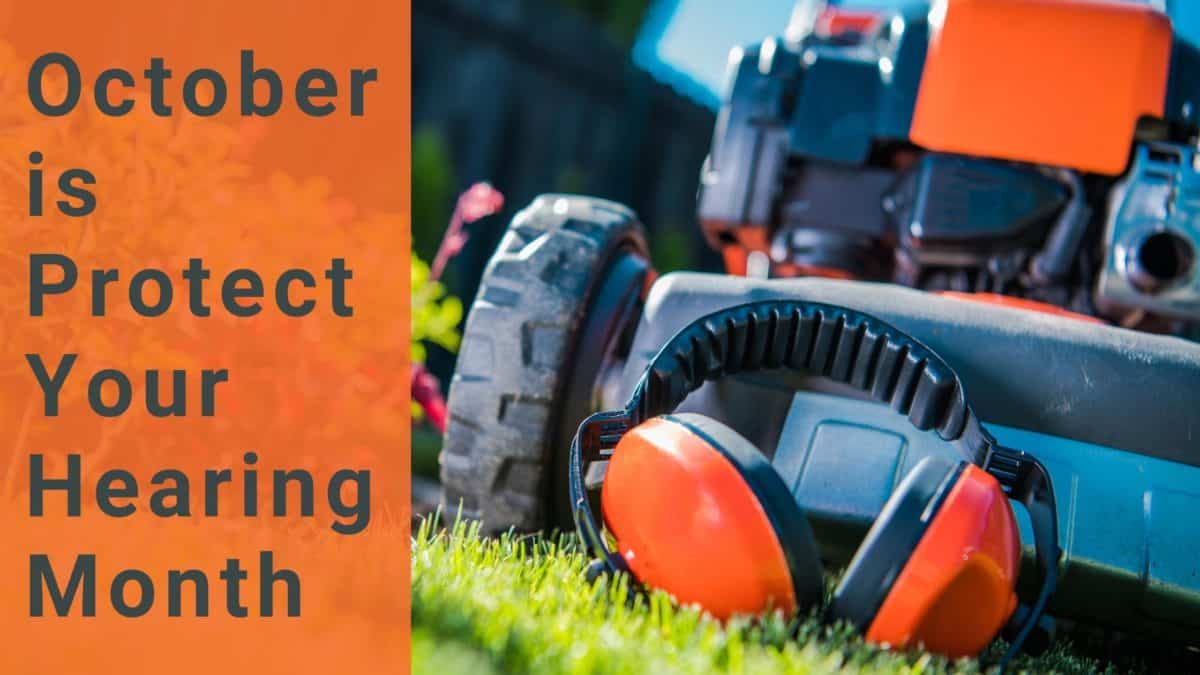- Volunteering for Hearing Health Causes - May 27, 2025
- Questions to Ask During Your Hearing Health Appointment - May 16, 2025
- Exploring Alternative Therapies for Hearing Loss - May 6, 2025
This October, join us in spreading the word about Protect Your Hearing Month. Protect Your Hearing Month is designed to educate and raise awareness around hearing loss and the importance of hearing protection.
You are never too young or too old to disregard your hearing health. Our ability to hear is a critical part of how we interact with the world, one that can be damaged if we don’t take care of it. Let’s take a look at why it is so important to consistently protect your hearing throughout your life.
The Small and Vital Sensory Cells
When we talk about permanent hearing loss, it is most often rooted in damage that occurs to the tiny sensory cells called “cilia” or “hair cells” that our body relies on to detect sound and send signals to the brain. These miniscule hair cells are so finely calibrated, they are triggered by the vibrations of sound waves in the air. The root of the activated hair cell is designed to send a signal to the brain which processes and interprets the incoming sound signals.
The hair cells are responsible for most of the body’s physical detection of sound. The human ear is designed to detect very soft sounds such as faint whispers or approaching footsteps. Our hair cells can also pick up on a great deal of nuance – distinguishing similar voices from one another, or the material making a certain noise. Our brain is even adept at detecting the time differences between incoming sound signals picked up in each ear and uses those signals to triangulate the direction a sound is coming from.
Hearing Can Slip Away
The hair cells we are born with are, unfortunately, our lifetime supply. Unlike other types of cells, human hair cells cannot regenerate themselves or replace themselves if they are damaged. That means that we carry damage to our hearing our whole life, and it can accrue if more injury occurs. The less active hair cells we have working for us, the less “detail” we can detect in sound. This is why one of the first signs of significant hearing loss is voices sounding muffled or mumbled rather than clear – our ears simply are not receiving all the sound information they are used to.
While our hair cells can detect sounds that are surprisingly soft, they cannot withstand sounds that are excessively loud. Think of a sound wave like a wind passing over the wildflower of your hair cell. The wildflower has no trouble withstanding a gentle breeze, but gusty weather or worse can punish the poor plant beyond repair. A fairly loud sound over a sustained amount of time is akin to a relentlessly windy day bending and eventually flattening a flower – without bouts of time to recover, the plant eventually is unable to spring back. Sudden bursts of very loud noise could be compared to extreme weather – if a hurricane force wind whips up, and any flower in its path may be quickly uprooted.
Loud sound punishes our hair cells in similar ways. Sound at or below 75 decibels (dB) is safe for our ears to listen to, the “gentle breeze” of sound waves, about the volume level of office noise. At 85 dB, about the sound level of a factory floor, think of sound like a constant wind -after 8 hours of exposure, our hearing begins to sustain permanent damage. A live concert is akin to a more severe windstorm, at around 105 dB, our hearing is damaged by these sounds in under 10 minutes. A very loud noise, 120 dB and above, like a gunshot or firework explosion, is more like a hurricane, doing instant irreparable damage to our hearing.
Protection Is the Key
By protecting your hearing from excess noise exposure, you greatly decrease your risk of hearing loss. Using ear plugs and ear muffs to lessen incoming loud volumes, and avoiding loud noises whenever possible keeps your hair cells safe from damage. Think of protecting your hearing as preserving a precious but delicate tool. In order to keep using it, you need to keep it out of harm’s way. Take care of your hearing every day and have a great Protect Your Hearing Month!

